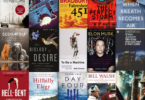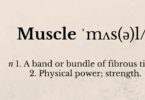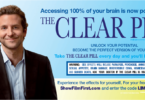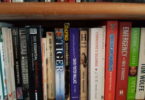It’s been a middling year, reading-wise. I had a good run at the start, a big old blast at the end (more on how I did that later), and a pretty terrible middle (thanks to work and other projects, but then again that isn’t an excuse and anyway shut up we’ll get to that later). But still: I’ve read a lot of good stuff, and some stuff that really isn’t worth your reading but that I’ve teased the good points out of anyway for you, the dedicated Live Hard reader.
Anyway. The best book I read all year didn’t start out as a book at all: Tim Urban’s Elon Musk Blog Series started as four posts on the reliably-great waitbutwhy.com, but since it runs to over 100,000 words he (sensibly) decided to format it as an eBook, and you should be glad he did. It starts from first principles to explain exactly why climate change is a) Happening and and b) Bad, why not relying on fossil fuels is inevitable at some point and why electric cars are going to take over if we don’t all die first, then gets into the dynamics of Mars colonisation in similarly mind-blasting ways, and finally explains how you can think/act more like Elon Musk, who is basically a real life Tony Stark from Iron Man. It inspired me and got me angry and gave me a tiny glimmer of hope among all the dreadfulness of the past year, and made me wish that there were more books like it.
A book that is superficially like it (but not really) is Yuval Noah Harari’s Sapiens, which sold a lot of copies last year and seems to be an enormously entertaining history of how humanity has developed from hunter-gatherers into smartphone-wielding dopamine addicts, with very good entry-level takes on the importance of economics and myth. The problem: there were chunks of it that I know from other reading are a lot more complicated than Harari makes out, and according to other people who know their stuff, that’s not an uncommon experience. A good read, then, but not as illuminating as a lot of reviews are claiming.
Obviously I read a lot of pop science/psychology at all times, and of those Why Don’t Zebras Get Ulcers is a fantastic read that’s changed the way I think about stress, with author Robert Sapolsky (who, unusually for a pop-science writer, is actually a renowned expert in his subject) getting pretty dense on the biology occasionally but never being afraid to pause for a joke. After that I went straight into Sapolsky’s biographical A Primate’s Memoir, which is less essential for your own well-being, but even funnier and sadder and a sterling reminder that the only animals more prone to in-fighting, bullying and needless unpleasantness are humans. Close behind that were Daniel Kahneman’s Thinking, Fast And Slow, which is about as good a primer as you’ll find on how your stupid brain works and why you’re so prone to making irrational snap judgements, and then Flow, Mihaly Csikszentmihalyi’s seminal work on making any activity better/more enjoyable/more productive. Both have been endlessly-reworded by other authors (I won’t write lesser because I’m interested in Michael Lewis’ take on the Kahneman story, out soon), but you might as well go to the source: they’re readable, science-packed and fun.
Also on the books-I-really-should-have-read-before list came Charles Duhigg’s The Power Of Habit, which was one of those books I deliberately avoided because everyone was going on about it and I’m contrary, then finally read and immediately became an evangelist for. Duhigg’s case – that you can change any habit if you keep the cue and reward the same – is simple but incredibly helpful, and is exactly the thing I used to start reading about 50 pages a day for the last month of the year. It’s presented with a whole stack of Gladwellian evidence that you can happily skim-read, and so on that note it’s pretty thematically close to Matthew Syed’s Black Box Thinking (a series of lessons on learning from failure) and Taylor Clark’s underrated Nerve (a solid look at the science of dealing with fear). Both are decent, but I’ve started using the ‘tactical breathing’ from the latter, so that gets the nod, if you can only pick one. Nice work, Taylor.
I like my fiction like I like my workouts – short and super-aggressive – so it’s probably no surprise that I banged straight through Yuri Herrara’s Signs Preceding The End Of The World, Fyodor Dostoyevsky’s Notes From The Underground and David Szalay’s All That Man Is (it’s basically a load of liver-punching short stories) and a bit more surprising that I bashed through 400-odd pages of The End Of The World Running Club in about three days. The latter’s a surprising treat, though: it’s obviously pretty desperate to be a film, but fundamentally a heart-wrencher about the hopelessness of the grown-up ‘lad’ and the joy of doing exercise for its own sake. It also has a really good tea-brewing metaphor in there somewhere. I love tea.
Also on the fiction front, my holiday read was the always-reliable (if you want pages and pages of rambling about ballistics profiles and gunfighting) Stephen Hunter’s The Third Bullet, an actually-pretty-plausible alterno-conspiracy on the JFK assassination, and also on the violence front, I followed that up with John Kavanagh’s Win Or Learn, Georges St-Pierre’s Way Of The Fight and Uriah Faber’s Rules of The Cage. I read MMA biographies mainly for the actionable advice, so I’ll give you my reviews of them in the numbers of passages I highlighted: 27, 132 and 12 respectively. GSP: still the best.
Somewhere in there I also had a go on Jon Ronson’s So You’ve Been Publicly Shamed (unexpectedly unsettling take on just how easily your life can be torn apart by social media, though I’m still not very sympathetic to Jonah Lehrer) and Jocko Willink’s Extreme Ownership, which felt a bit more like an over-expanded magazine article than an entire book. I love the central premise (that you need to take responsibility for everything that happens in your team/unit/company), but I’m not sure I needed 317 pages to get there. On a similarly-military tip I fully recommend Plutarch’s On Sparta, which is not just a reminder that the Spartans were kind of awful (though Plutarch’s a big apologist for Lycurgus and maintains that the really bad helot-bashing came in after his death) but also a goldmine of fun Spartan facts (example: to deter the worst excesses of capitalism, Lycurgus introduced iron money that was deliberately too heavy for people to be able to successfully steal/loot/bribe people with). If you’re in for some moral biography but don’t want pages of dates and names, I also recommend Ryan Holiday’s The Obstacle Is The Way.
What else? If you’re into fitness I’d recommend The Sirt Food Diet (for the recipes) and Little Lessons On HIIT (for the workouts), and I read Dune again just because Dune is brilliant and why can’t somebody just make it into a TV series already. I also read a genuinely enormous amount of Batman comics, quite a lot of Walking Dead, and a terrifying number of thinkpieces on how the world is going to get worse and worse and worse next year. I’ll still be aiming for 25 pages a day, minimum, as long as I’m not burning them for warmth in a post-apocalyptic wasteland or using my e-reader to scare away the cavepeople. Chuck me your recommendations in the comments, and READ HARD.







Leave a Comment